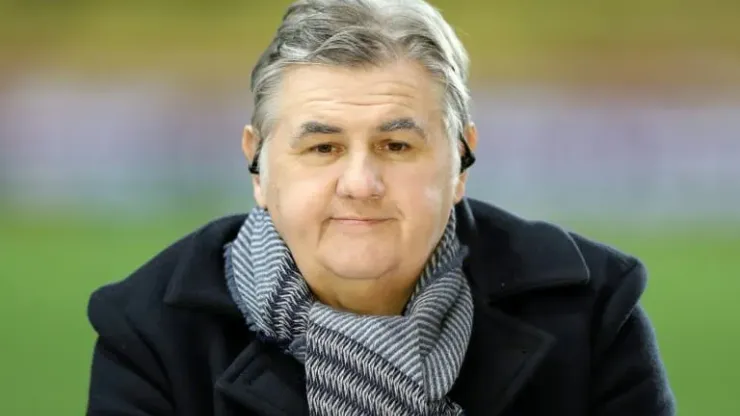Paris (AFP) – A top French football television pundit has expressed regret over his past behaviour after former colleagues accused him in a television documentary of repeated sexual harassment while at work.
The allegations against Pierre Menes, a familiar face to fans of French football, have raised new concerns over the behaviour encountered by women in the media, especially in the macho world of sports journalism.
The controversy erupted when French TV channel Canal+, which employs Menes, was accused of cutting passages from a TV documentary about decades of sexism in sports journalism in order to protect Menes.
The Les Jours news site said two passages accusing Menes of two instances of sexual harassment were cut from the final version of the documentary “I am not a Slut, I’m a Journalist” by journalist Marie Portolano when it was broadcast Sunday.
One of these passages was later broadcast on a sister channel of Canal+, C8, to whom Menes also gave an interview.
Menes expressed his “deep regret”, adding that what he stood accused of “is intolerable in the climate of 2021”.
According to Les Jours, in August 2016, at the end of a programme, Menes lifted Portolano’s skirt before grabbing her buttocks, “off the air but in front of the audience”. Menes insisted he only lifted the skirt of the journalist.
The other case concerns his colleague Isabelle Moreau, who was forcibly kissed on the mouth by Menes, in a scene that was recorded and has been reposted recently on social media.
The hashtag #PierreMenesOut has trended on Twitter where another archive video of him forcibly kissing TV presenter Francesca Antoniotti on the lips also went viral.
France’s junior interior minister Marlene Schiappa said such behaviour was unacceptable but also warned that Menes’ conduct could be only the tip of the iceberg.
“I think there are other Pierre Meneses. We are speaking about Pierre Menes as there are videos and women speaking about him,” she told RMC TV.
“But there are other Pierre Meneses in the world of television and I want them to know that their fame does not protect them,” she added.
“Fame is not a pass that allows someone to sexually harass their colleagues at work,” she said.
Many commentators have cast France as being slow to break longstanding taboos over sexual abuse and harassment as the #MeToo movement gathered steam.
But over the last year, a slew of accusations and legal cases have engulfed prominent figures such as the writer Gabriel Matzneff and the political commentator Olivier Duhamel.
ac-sm-pcl-sjw/js/gj
200+ Channels With Sports & News
- Starting price: $33/mo. for fubo Latino Package
- Watch Premier League, Women’s World Cup, Euro 2024 & Gold Cup
The New Home of MLS
- Price: $14.99/mo. for MLS Season Pass
- Watch every MLS game including playoffs & Leagues Cup
Many Sports & ESPN Originals
- Price: $10.99/mo. (or get ESPN+, Hulu & Disney+ for $14.99/mo.)
- Features Bundesliga, LaLiga, Championship, & FA Cup
2,000+ soccer games per year
- Price: $5.99/mo
- Features Champions League, Serie A, Europa League & Brasileirāo
175 Premier League Games & PL TV
- Starting price: $5.99/mo. for Peacock Premium
- Watch 175 exclusive EPL games per season






